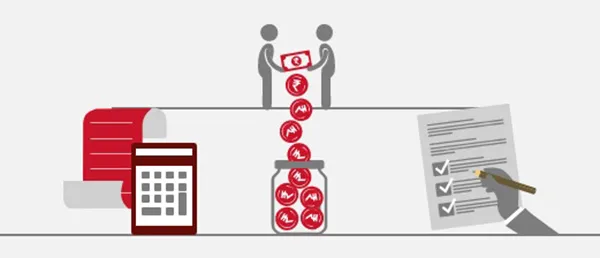
Menu

Menu

Attracting international talent is just one aspect of the UAE’s commitment to labor rights. The UAE acknowledges its responsibility to ratify conventions that protect the rights of both domestic and international workers. To achieve this, the country implements highly beneficial policies and programs that promote transparency and balance between Emiratis and foreign talents.
Moreover, advanced and integrated legislation supports job changes and contract terminations, ensuring a fair work environment. The Ministry of Human Resources and Emiratization is dedicated to guaranteeing the security of the workforce. In addition, this Ministry has launched a series of initiatives aimed at promoting worker welfare throughout the country.
Furthermore, this department takes significant steps to standardize labor markets by creating transparency for both employers and workers. According to UAE labor law, all employees who complete their employment contracts qualify for end-of-service benefits, commonly known as gratuity. Importantly, the gratuity amount for any employee in the UAE primarily depends on several factors.
♦ Contract type
♦ Basic salary pay
♦ Total number of years served
♦ Reason behind the termination
According to Ministerial Decree 764 of 2015, the Ministry of Labour has released standard employment contracts. This decree outlines several key elements that must be included in any labor contract signed with registered employers in the UAE.
First and foremost, the contract should clearly specify the job title and duties of the employee. Additionally, it must outline the duration of the contract, whether it is limited or unlimited. Furthermore, the agreement should include details about the employee’s salary, benefits, and working hours.
Moreover, the contract should address termination conditions, including notice periods and reasons for termination. By including these essential elements, employers can ensure transparency and protect both parties’ rights within the workplace.

♦ Employment contract forms shall be adopted only when the expatriate singed the employment offer
♦ The standard employment contract shall be submitted to the Ministry of Human Resources and Emiratization
♦ No new clause should get added to the standard contract referred to, unless they are consistent and compliant with other clauses of the standard contract and are approved by the ministry
According to UAE labor law, the type of employment agreement significantly impacts an employee’s tenure. Specifically, the timing of resignation during the service period can affect gratuity pay calculations. Under Labour Law No. 8 of 1980, the UAE offers two main types of contracts: limited (or fixed-term) contracts and unlimited contracts.
The primary difference between these contracts lies in their termination conditions and end-of-service benefits. A limited contract specifies a set duration, meaning it automatically ends if not renewed. In contrast, an unlimited contract provides more flexibility for termination, allowing either party to end the relationship with appropriate notice.
Moreover, the choice of contract type influences both employee rights and employer responsibilities. Limited contracts require strict adherence to terms, while unlimited contracts offer broader negotiation scope, benefiting both parties by allowing quick responses to changing business needs.
As a rule of thumb, limited-term contracts typically specify both a start date and an end date, defining a standard employment period. If the employer does not renew this contract, it automatically cancels at the end of the term. Consequently, many employers hire individuals on limited contracts for specific projects that require a defined duration. This arrangement provides clarity and ensures that both parties are aligned regarding their commitments.
In the UAE, limited contracts can last a maximum of four years, which ensures that both parties understand the timeline of employment. This four-year cap helps establish a predictable employment framework, which is particularly beneficial in industries with fluctuating demand. Additionally, these contracts should always include a notice period for termination, allowing both the employer and employee to prepare for the transition. This transparency fosters clear communication and helps manage expectations throughout the employment relationship.
Furthermore, it is essential for both parties to review and understand the terms of the limited contract, as this can prevent potential misunderstandings in the future. Employers should ensure that the contract outlines specific deliverables or performance goals, while employees should clarify their responsibilities and expectations. By doing so, they can create a more harmonious working environment and facilitate smoother transitions, whether at the conclusion of the contract or during any potential extensions. Overall, effective communication and clear expectations contribute to a successful limited-term employment experience.
The unlimited-term contract is the most commonly used contract in the UAE. By its nature, this open-ended agreement offers greater flexibility. Both parties can terminate this type of contract through mutual consent or by providing a notice period that ranges from one to three months. During this notice period, both parties must uphold their obligations, ensuring a smooth transition.
Moreover, this flexibility allows employers and employees to adapt to changing circumstances without the constraints of a fixed term. For instance, an employer may need to make staffing adjustments due to market conditions, while an employee may choose to pursue new opportunities. Therefore, understanding the implications of this contract type is vital for both parties.
If the employment relationship ends without due process, either by the employer or the employee, it can lead to complications. In such cases, either party may take legal action and seek compensation for any grievances. Hence, it is crucial for both parties to comply with legal procedures to avoid disputes and maintain a fair working environment. Furthermore, open communication during the notice period can help clarify expectations and prevent misunderstandings, ultimately fostering a positive professional relationship even as the employment concludes.
The Ministry of Human Resource and Emiratization (MoHRE) implemented a new rule that allows entities to recruit employees under the multi-employer contract. This contract specifically applies to skilled workers from both inside the country and abroad. Under this arrangement, employees can work for one or more companies without needing to obtain original contracts from any of them.
Moreover, individuals can hold multiple jobs simultaneously; however, they must secure the necessary permits from the Ministry of Human Resource and Emiratization. It is important to note that this contract must adhere to the same regulations as the other two standard contracts mentioned earlier. Additionally, the multi-employer contract cannot be converted into a regular contract until the completion of the part-time employment term. This structure promotes flexibility while ensuring compliance with established labor laws.

If an employee serves at least one year of their term, they are entitled to gratuity pay. When calculating this gratuity, it includes the latest basic salary but excludes allowances such as housing, furniture, conveyance, utilities, travel, overtime pay, recreational expenses, children’s education allowances, representation allowances, and any other bonuses.
If an employee voluntarily terminates their contract before completing a year, they will not receive any gratuity pay. Additionally, employers cannot deduct gratuity amounts unless the employee owes money to the employer from previous transactions.
According to Title Seven regarding the termination of contracts and end-of-service gratuity released by the Ministry of Human Resource and Emiratization, several notable points are outlined below:
♦ Non-working days without pay do not count towards the period of service. In this case, employers shall calculate gratuity based on 21 days’ wages for the first five years and 30 days’ wages for subsequent years.
♦ Employers who have savings funds for their workers can deposit the required amount into it, fulfilling their legal obligation regarding end-of-service benefits. Workers will receive the saved amount or the due gratuity. If the fund does not cover end-of-service benefits, workers shall receive both the amounts from savings and the end-of-service gratuity.
♦ If an entity offers a retirement system, health insurance, or similar schemes, workers can choose their benefits between the insurance scheme, the money entitled from the retirement system, or the prescribed gratuity.
♦ In the event of a worker’s death, the employer will pay the end-of-service amount to the worker’s beneficiaries.

♦ An employee who has completed one year or more of continuous service is entitled to an end-of-service gratuity upon termination of service. Employers will not include days of absence from work without pay in the calculation of the service period. The gratuity will be calculated as follows:
♦ Employees who have served for less than one year do not qualify for any gratuity pay.
♦ Employees who have served for more than one year but less than five years are entitled to full gratuity pay based on 21 days’ salary for each year of work.
♦ Employees who have served for more than five years are entitled to full gratuity of 30 days’ salary for each year of work after the first five years.
In all cases, the total gratuity shall not exceed the wage of two years.
In the event where the employer terminates an unlimited contract, calculation will be as follows:
♦ Employees who have served for less than one year do not qualify for any gratuity pay.
♦ Employees who have served for more than one year but less than five years are entitled to 21 calendar days of basic salary for each year of the first five years of work.
♦ Employees who have served for more than five years are entitled to 30 calendar days of basic salary for each additional year, as long as the total compensation does not exceed two years’ pay.
In the event where the employee under an unlimited contract resigns, calculation will be as follows:
♦ Employees who resign before completing one year of service do not qualify for any gratuity pay.
♦ Employees who serve between one and three years are entitled to one third (1/3) of 21 days’ basic salary as gratuity pay.
Employees who serve between three and five years are entitled to two thirds (2/3) of 21 days’ basic salary as gratuity pay.
♦ Employees who serve for more than five years qualify for the full 21 days’ basic salary as gratuity pay.
♦ Employees who terminate their job to avoid dismissal due to submitting false certificates, documents, or false identity and nationality, as well as workers under probation, do not qualify for gratuity pay.
♦ Employees who leave their job voluntarily without notice, regarding a contract with an undetermined term, or before completing five years of continuous service with a determined term, do not qualify for gratuity pay.

The Ministry of Human Resources and Emiratisation of the United Arab Emirates actively strives to meet global standards in various aspects, making the law subject to change, interpretation, or redefinition. Additionally, it aims to reduce the risk of litigation. The success of each redefinition of legal laws reflects the ongoing changes in society. Therefore, the laws mentioned are not static. Amendments in areas such as end-of-service benefits and gratuity calculations will undoubtedly streamline the settlement process.
To stay informed about the latest updates related to law enforcement by the Ministry of Human Resources and Emiratization, check out our blogs here.
If you’re a UAE-registered employer and are unclear about any human resource processes, reach out for support. HRBluSky offers cloud-based platforms designed for small and medium enterprises. We provide a wide range of services, including employment visas, employment travel, payroll management systems, facial recognition attendance systems, employment insurance, employee record management, and WPS file generation.
If you don’t see your specific needs in the list above, our experts can create personalized solutions upon request. Don’t hesitate to contact our team with any questions. Click here to learn more.
Alignment
Article
Audit
Automation
Benefits
Candidate
Communication
Compliance
Digitalisation
Digital Technology
Diversity
Emirates Id Application
Employee Experience
ESS
Feedback
Health and Safety
HRMS
HR Strategy
HR System UAE
Human Resource Management
Human Resource Management Systems
Job Roles
Learning and Development
Onboarding
Outsource
Payroll
Payroll Management System
Payroll Processing
Performance
Performance Management
Personalisation
Recruit
Recruiting
Recruitment
Remote Working
Rewards
Security
Service Providers
Skills
Smart
Survey
Virtual
Visa Cancellation
Work Environment
Workforce
© 2026 Pruvity HR Solutions Pvt Ltd, Madurai, India